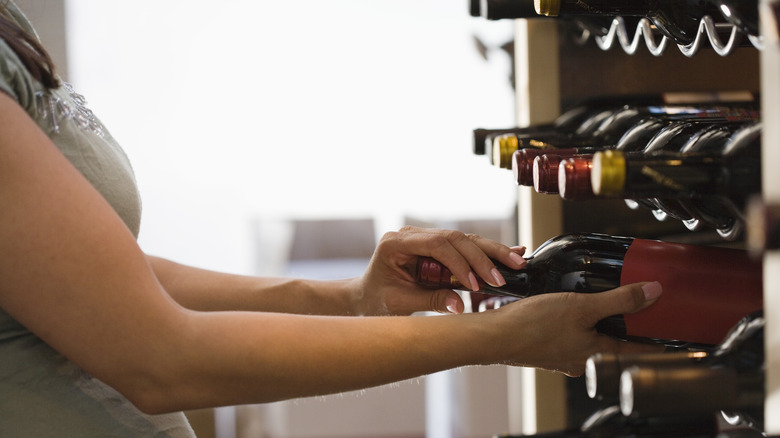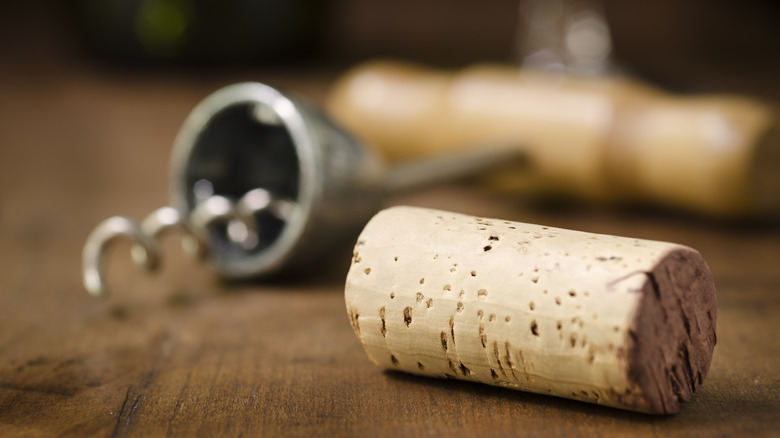When It Comes To Wine Bottles, Size Matters
If you've ever walked through a grocery store's wine aisle, you've likely noticed that wine bottles come in a wide variety of shapes and sizes. Understandably, you might only consider the difference in size if you're having a few friends over and are trying to decide whether to buy two smaller bottles or one large bottle.
However, the size of a wine bottle affects much more than how many glasses you can pour. According to former sommelier Mathew Woodburn-Simmonds, a bottle's size can also affect the contents –- especially how quickly a wine ages. A smaller bottle, for instance, will age quicker than a large bottle, as there is less wine.
While this may not matter to someone who simply wants to drink a glass of wine after a long day, this knowledge is useful if you want to enjoy the nuances of aged wine without shelling out, say, $4,178 for a bottle of 1945 Chateau Margaux. Instead, buy a smaller bottle of wine, and let it age in your basement.
A wine bottle's size also affects recorking
Besides the amount of time it takes to age, another downside to purchasing a large bottle of wine is recorking. Smaller bottles are generally consumed much more quickly, so much so that it doesn't matter how well you recork it.
On the other hand, expert Mathew Woodburn-Simmonds points out that larger bottles pose the problem of oxidation. In other words, once you open a bottle and expose the wine to air, various characteristics such as flavor, aroma, and even color start to change. Therefore, recorking a bottle of wine traps your wine with a large quantity of air and subjects it to rapid chemical changes.
Don't get us wrong, it's not the end of the world if you recork a large bottle of wine, but it's certainly not ideal. Once the wine has been exposed to air, there's no reversing oxidation, but you can invest in a wine oxygen pump to remove some air from the bottle and further slow the process.

